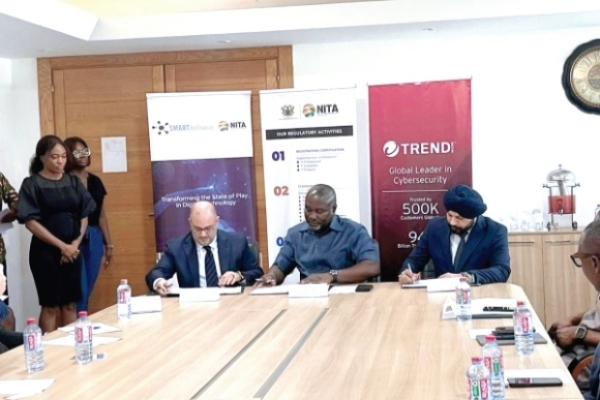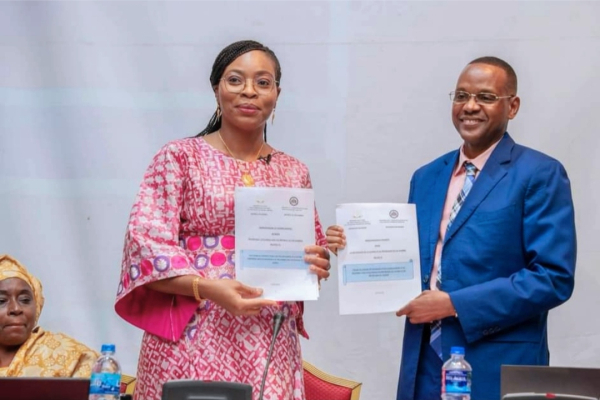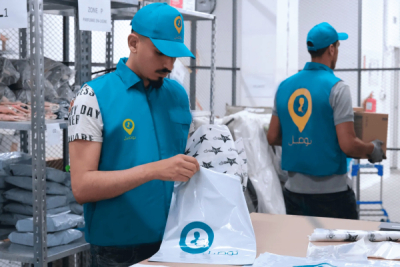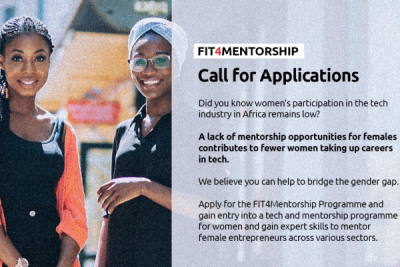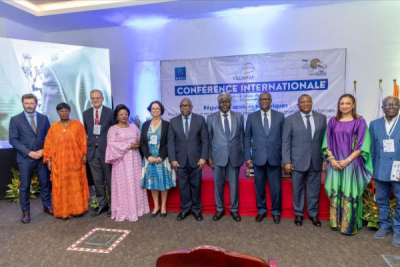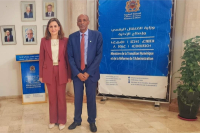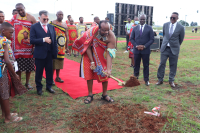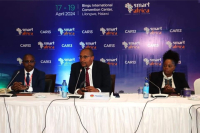Cybersecurity is crucial for Africa's economic growth. Strong cybersecurity not only attracts foreign investment but also helps Africa maximize digitalization benefits, fostering inclusive growth and prosperity.
The National Information Technology Agency NITA has teamed up with SmartInfraco and Trend Micro to strengthen cybersecurity for government entities with antivirus services. The agreement, inked on April 24 in Accra by Richard Okyere-Fosu, NITA's Director General, alongside Mazen Al-Adhami from Trend Micro and Harkirit Singh, CEO of Smart Infraco, seeks to deliver cybersecurity solutions, safeguarding the digital landscape from potential threats.
Richard Okyere-Fosu highlighted the agency's cybersecurity efforts, noting antivirus services as a crucial missing component, with only about 30% of government systems equipped with proper antivirus which poses a significant risk to the nation's digitalization agenda. “It is in the face of such risk that NITA as part of our mandate has over the past few years collaborated with partners within the public and private sector to roll out a series of interventions to address information and cybersecurity in general across the public sector space,” he explained.
The antivirus services offered through this partnership will maintain system integrity and prevent cybersecurity incidents, addressing significant gaps in antivirus coverage across government systems.
Mazen Al-Adhami and Harkirit Singh expressed dedication to providing government organizations with comprehensive cybersecurity solutions, including endpoint and email security measures.
Ghana is ranked third (3rd) in Africa and 43rd globally on the 2020 Global Cybersecurity Index (GCI) report by the International Telecommunication Union (ITU). The country is one of the few African countries to have a national cybersecurity strategy and national incident response capabilities. Yet it is subject to cyber incidents that cause significant disruptions to businesses and the economy. In September 2021, a vpnMentor Research Team, headed by Noam Rotem and Ran Locar, uncovered that 700,000 individuals in Ghana had their data, totaling 55 GB, compromised, exposing them to risks such as fraud, hacking, and identity theft. This not only endangered the affected individuals but also posed significant threats to the institutions and the Ghanaian government.
The signing ceremony marks a significant step towards enforcing security compliance and safeguarding government data and infrastructure to accelerate Ghana's digitalization efforts.
Hikmatu Bilali
Undersea cable disruptions are a recurring issue in Africa, resulting in considerable financial setbacks for numerous stakeholders in the continent's telecommunications industry. Significant improvements could be realized through investment in this sector.
Guinea and Gambia are set to be linked by a second subsea optical fiber cable in the near future. The Minister of Posts, Telecommunications, and Digital Economy for Guinea, Rose Pola Pricemou, and her Gambian counterpart, Minister of Communications and Digital Economy Ousmane Bah, signed a memorandum of understanding to this effect on Wednesday, April 24, in Banjul.
The memorandum aims to combine efforts and resources to carry out a feasibility study for the creation of a new submarine cable. The World Bank will fund the future infrastructure as part of the West African Digital Integration Project (WARDIP).
Under this agreement, both countries stand to benefit from reduced project-related costs. For example, Guinea could see its expenses cut by more than 40%. This initiative underscores the two nations’ commitment to bolstering their cooperation for a more accessible and prosperous digital future.
Gambia and Guinea are currently connected to the ACE (Africa Coast to Europe) cable, which they primarily depend on for high-speed internet services. Frequent disruptions on this infrastructure lead to service interruptions, making it imperative for the two nations to connect to a second submarine cable capable of providing backup.
The rollout of the second subsea cable is expected to not only enhance the quality of high-speed telecommunications services but also to broaden the reach of these services to thousands more individuals and lower costs. The project is also poised to accelerate the implementation of the two countries’ digital transformation goals.
Samira Njoya
The solution is the brainchild of a serial entrepreneur with years of experience.
Tawssil, a logistics solution developed by the Moroccan company Cash Plus, was originally established as Ramapar in 2004 by Abdelbakki Amar. Launched in 2020, Tawssil offers users the convenience of having packages delivered either to a designated relay point or directly to the recipient’s home.
While the mobile application for the solution is reportedly under development, users can currently access the delivery service through its web platform. The cost of delivery varies based on the weight of the package and the delivery location.
For instance, delivering a package weighing between 1 and 5 kilograms within the same city costs 20 dirhams (approximately 2 US dollars). The fee rises to 45 dirhams for intercity deliveries, and to 55 dirhams for deliveries to Laâyoune and Dakhla, two cities situated in the Sahrawi Arab Democratic Republic, a territory administered by Morocco. Tawssil provides a comprehensive rate list for packages weighing up to 20 kilograms.
In addition to serving cities in Morocco, Tawssil extends its delivery services to other African countries and continents, including America, Asia, and Europe, leveraging its partnerships with numerous international shipment specialists. More information about this service can be obtained at relay points.
Tawssil has also introduced a special offer for e-commerce startups. To avail this offer, startups need to create an account and sign a contract. After that step, Tawssil facilitates the collection and delivery of clients’ orders within 24 to 48 hours, provides real-time tracking of parcel delivery for the recipient, manages returns, and more. By 2022, just two years after its inception, Tawssil had already delivered over a million parcels to 200,000 recipients across more than a thousand localities.
Reflecting on this achievement, Rachdi Reda, the CEO of Tawssil, stated, “These performances were made possible thanks to the extensive network of Cash Plus and the establishment of a robust logistical ecosystem comprising 30 regional hubs, ensuring optimal coverage throughout the Moroccan territory.”
Adoni Conrad Quenum
BongoHive, Zambia’s leading innovation and technology hub, in collaboration with the German Cooperation (GIZ) and Zanga African Metrics, a Zambian firm, has recently unveiled the FIT4Mentorship program. This initiative is specifically designed for African women in the ICT sector. The program aims to bring about substantial transformations in the industry by offering mentorship, networking opportunities, and capacity-building for women. Interested applicants are encouraged to apply by May 31.
After studying diplomacy in the United States, she returned to Congo-Brazzaville and ventured into digital communication. Her professional achievements earned her a national award.
Cindy Gamassa (photo), a Congolese entrepreneur and the founder and CEO of Numerika, assists businesses and brands in effective communication. On April 18, 2024, during the digital forum in Congo-Brazzaville, she received the award for the best Female-founded startup.
Established in 2020, Numerika offers its clients a comprehensive range of services from communication strategy to operational implementation, aiming to maximize business impact. Its areas of expertise include digital marketing and communication, online community management, and web development.
This award is the Congo’s way of celebrating Cindy Gamassa's commitment and dedication to her work. "True recognition comes when one's own country acknowledges their efforts and hard work. For this invaluable support, I extend my heartfelt gratitude to the organizers of the digital forum, including the World Bank's PATEN project, Deloitte, the European Bank, the NGO Pratic, and the Ministry of Posts and Telecommunications," Cindy Gamassa stated.
In addition to her role at Numerika, since June 2022, Cindy Gamassa has been serving as a mission officer at the Ministry of Posts, Telecommunications, and Digital Economy. She is also the founder of the Sisterhood Network, a network aimed at creating a community of women supporting each other's personal and professional ambitions.
Cindy Gamassa holds a bachelor's degree in law obtained in 2014 from the Catholic University of Lyon in France and a bachelor's degree in business and international relations from Oglethorpe University in the United States, obtained in 2019.
Melchior Koba
Côte d’Ivoire’s Prime Minister, Beugré Mambé, recently advocated for responsible use of social media. During the conference of the French-speaking regulators' network, REFRAM, and the African Communication Regulation Authorities Network, ACRAN, on Tuesday, April 23, he called on these networks to protect digital platforms from toxic content and to strengthen regulation to ensure a healthy online environment. He also emphasized the importance of dialogue in promoting responsible digital usage.
On Monday, April 22, Djibouti’s Minister of Labor, Omar Abdi Said, met with the Moroccan Minister of Digital Transition during his official visit to Morocco. The two officials discussed ways to strengthen bilateral cooperation, focusing on digital transition, administrative reform, and social protection. They expressed satisfaction with the relations between their countries and agreed to promote the exchange of expertise and best practices for the mutual benefit of their populations.
Despite the ongoing funding challenges in the African technological landscape, the platform 'Africa: The Big Deal' maintains an optimistic outlook for a resurgence in the near future.
Equity funding mobilized by startups in Africa accounted for less than 1% of all funds raised globally in the first quarter of 2024. This was reported by Africa: The Big Deal, the database that tracks over $100,000 deals captured by African startups, on Tuesday, April 23.
The total funding for these startups was $332 million, compared to the global startup funding of approximately $58.4 billion during the same period. This represents a 47% decrease in funding for Africa compared to the same period in 2023, while a global decrease of 21% was also noted. All regions, except Europe, experienced a decline.
"If we compare Q1 2024 funding to the funding heatwave peak (in late 2021/early 2022), start-ups are currently raising 5x times less quarterly than they were when fundraising peaked in Q3 2021. This is a more serious contraction than the global average (3.1x), which is very much influenced by Europe and US numbers (2.7x). It is in line with the Asian trend though, and much less dramatic than the gap registered in Latin America (14x)," explains Africa: The Big Deal.
Despite the challenging performance of African startups, ‘Africa: The Big Deal’ remains hopeful for the upcoming months. The platform notes: "...We have seen in the past that the trends observed in the US and Europe usually take a couple of quarters before they impact Africa." It anticipates that the recent resurgence of funding in the United States and Europe will eventually ripple through to Africa.
Adoni Conrad Quenum
Securing people's identity through digital technologies is a current concern in Africa, where millions of people remain legally "non-existent". This is a key issue for economic and social development.
The Belgian group SEMLEX, which specializes in the production of secure identification documents using biometric solutions, has started building its headquarters and ultra-modern factory in the Nokwane Special Economic Zone. The works were launched by King Mswati III on Wednesday 17 April 2024. The initial amount released for this investment is estimated at 810 million emelangini ($42.2 million).
[PHOTOS]: His Majesty King Mswati III cuts the sod at the construction site for Semlex Group's state-of-the-art Africa head offices & plant at Nokwane Special Economic Zone. pic.twitter.com/EgNxaKrGUR
— Eswatini Government (@EswatiniGovern1) April 17, 2024
“The creation of a local factory for the production of secure identity documents offers hope for the African region in terms of locating highly specialised services, which will enable Eswatini to develop its skills and reduce production costs for all secure identity documents. The advanced technology and rigorous security features built into these documents will ensure the integrity of our national identification systems, strengthen border control measures, and enhance the safety and protection of our citizens and residents,” said the King.
According to the African Centre for Statistics (ACS) of the United Nations Economic Commission for Africa (UNECA), reliable digital identity can contribute to economic growth in Africa. At the 12th StatsTalk-Africa webinar held on 20 February 2024 in Addis Ababa, Ethiopia, under the theme "Building inclusive national identity systems - Interconnecting digital and legal identity", Mactar Seck, head of technology and innovation at UNECA, said that "each country could unlock economic value equivalent to between 3% and 13% of GDP in 2030 through the implementation of digital identification programmes."
Stressing the important role of identification in social and economic inclusion, civic participation, etc., William Muhwava, head of demographic and social statistics at the ACS, deplored the fact that almost 542 million people in Africa do not have an identity card. Of these, some 95 million children under the age of five have never had their births registered, and 120 million children have no birth certificate.
The King also stated that in addition to securing documents and personal identity, the SEMLEX production plant "will have a transformative impact on our economy. It will create employment opportunities for our people, promote skills development, and contribute to the transfer of knowledge and technology.”
Satellite Internet adoption is vital for Africa's economic growth, especially amid recent fiber optic cable disruptions. It offers a resilient alternative, ensuring uninterrupted connectivity and sustaining essential digital services, fostering economic development.
Smart Africa has made a strong case for adopting satellite technology to address internet connectivity challenges in African countries. This was revealed during the opening meeting of the 13th Smart Africa Council of African Regulators in Lilongwe, on April 17.
Director General of Smart Africa Lucina Kone emphasized the importance of collective efforts in adopting satellite technologies to overcome the challenges posed by internet connectivity issues in Africa, where the distribution of cables has been inadequate.
"Most African countries are surrounded by internet cables but it has been a challenge to make these cables move across the continent. We, as Africans, should strive to making sure that they move so that internet connectivity challenges can be addressed,” Kone said at the meeting.
Thokozani Chimbe, Director of Legal Services at the Malawi Communications Regulatory Authority (MACRA), highlighted the significance of projects like One Africa Network (OAN) in enhancing digitization and addressing data roaming and charges.
In his “African Wireless Communications Yearbook 2022,” Paul Hamilton of Hamilton research reveals that as of June 2021, 57.1% of the population in sub-Saharan Africa (669 million) was within a 25km range of an operational fibre optic network node, compared to 55.9% (620 million) in 2020, 41.8% (371 million) in 2013, and 40% (345 million) in 2012.
Despite these advancements, the communication infrastructure in interior African regions remains inadequate, limiting access to more populations. This gap can be effectively addressed by satellite technology to boost connectivity which is now more crucial for development given the role of the digital in economic growth.
Hikmatu Bilali
More...
She embodies the spirit of innovation and commitment to a more sustainable future in Africa. In just one year of existence, her startup has already received national recognition.
Cynthia Umutoniwabo (photo), co-founder and CEO of Loopa, is on a mission to create a cleaner and smarter Africa. Hailing from Rwanda, she launched Loopa in 2023 under the Jasiri Talent Investor program in Kigali. The startup is quickly becoming a significant force in the climate technology sector, with its focus on transforming waste management through circular economy solutions.
Loopa targets organic waste and uses an innovative technological process to transform this waste into nutrient-rich organic fertilizers. These fertilizers are not only accessible but also affordable for small-scale farmers in Africa. By harnessing the power of the Internet of Things (IoT), Loopa optimizes this conversion process, offering an efficient and sustainable solution.
Cynthia Umutoniwabo has been serving as the deputy administrator of Cornwine, a Rwandan audiovisual production company, since September 2022. She is a software engineering graduate from Moringa School in 2021 and also holds a certification in tourism and service excellence from Cornell University.
Her professional journey includes a stint at the American hair salon Abby Hair Salon, where she worked as the operations manager from 2012 to 2018. In January 2022, she joined the Rwandan creative agency Dutch Tembo as the sales and marketing manager, a role she held for seven months.
Cynthia’s dedication to innovation was recognized in December 2023 when she was awarded the Innovator of the Year by Rwandan President Paul Kagame. This award acknowledges her exceptional contribution to the development of sustainable solutions in Africa.
Melchior Koba
The solution was launched by a tech entrepreneur on a mission to democratize legal expertise and make it accessible to everyone. It has become even more relevant with the adoption of electronic signatures in Tunisia in June 2023.
e-Tafakna, a Tunisian startup founded in 2022 by Norchen Mezni, offers a legaltech solution that streamlines the process of accessing, customizing, and finalizing legal documents online. With its mobile app, available on both iOS and Android (the Android app has been downloaded over 500 times from Play Store), users can electronically sign contracts to finalize agreements between different parties. The app offers a variety of contracts in French, English, and Arabic, including employment, real estate, certificates, and quotes/invoices.
Users can tailor documents to their specific needs, add relevant details, and send them out for signatures. The startup has also integrated artificial intelligence into its platform, offering recommendations for different contract clauses. This feature can be activated simply by scanning the document with a smartphone.
In addition to providing legal documents, e-Tafakna offers legal and accounting expertise and assists users in setting up limited liability companies and sole proprietorships. They offer a range of pricing plans, starting from $3.99 to $34.99, to cater to different user needs.
e-Tafakna won the StartUp’Act label in July 2022, a legal status that provides benefits for startups in Tunisia. In April 2024, e-Tafakna was selected to participate in the fourth edition of the Lab Innova for Tunisia 2024, along with 21 other Tunisian startups.
Adoni Conrad Quenum
She is dedicated to bridging the health gap for women. Her leadership and the impact of her company have earned her several awards and recognitions.
Berabose Aline Joyce, a tech entrepreneur from Rwanda, is the co-founder and CEO of Luna, a startup that offers digital health and wellness services for women across Africa. As Berabose described in 2023, Luna serves as a secure community platform where women can access reliable and safe products and services. Launched in 2022, Luna enables women to anonymously engage with other women and experts on key topics such as mental health, sexual and menstrual health, and maternity. Its mission is to simplify women’s access to trusted health specialists.
Luna’s primary services include Luna Health, a platform for consultations with certified doctors, and Luna Shop, an e-commerce platform that provides essential health and wellness products for women.
Before Luna, in 2016, Berabose Aline Joyce co-founded the African Dream Movement, a Pan-African organization dedicated to sustainable development and people’s well-being, where she served as the program director until 2019.
Berabose Aline Joyce completed her bachelor’s degree in Business and International Relations from Kigali Independent University in 2023. She also earned a diploma in Gender Studies, Menstrual Equity, Hygiene, and Management from the Clinton Global Initiative University in 2021.
She embarked on her professional journey in 2017 at AC Group Rwanda, a firm offering smart and interactive IT solutions, where she held the position of a marketing manager. In 2020, she transitioned to a consultant role for the Westerwelle Startup Haus Kigali incubator, powered by Evonik Stiftung. Her diverse career has seen her traverse multiple fields. In 2021, she took on the role of Head of Strategy at Right Venture Creative, a creative and communication agency.
In addition, she serves as the CEO of Kunda Eco — Arts Space, a company that creates and promotes recycled art and craft objects in Rwanda. In 2022, she joined Simbuka Technological Innovation, a social enterprise specializing in water-related technologies and solutions.
Berabose Aline Joyce’s exceptional leadership has been recognized widely. In 2023, she was named among the 32 Rwandan women changemakers, and in 2024, she received the prestigious Women in Leadership (WIL Award) in the health and wellness category.
Melchior Koba
The Algerian government adopted a pharmaceutical and industrial policy aimed at making this sector a strategic pillar of the economy, capable of generating wealth. To achieve its ambitions in that sector, it implemented several initiatives.
Algeria’s Health Minister, Abdelhak Saihi, announced on Monday, April 22, the country’s plans to launch a digital platform dedicated to managing community pharmacies nationwide in the coming months. The announcement was made during the opening ceremony of the 17th national symposium of the Algerian National Union of Community Pharmacists (SNAPO).
According to Saihi, the platform “will establish a new, modern, efficient, and transparent mode of managing all aspects related to community pharmacies, thus contributing to the prevention of self-medication and the control of the traceability of psychotropic drugs, while anticipating shortages and stockouts of pharmaceutical products.”
The development of this platform is being supervised by a committee that includes the General Directorate of Pharmacy and Equipment of the Ministry of Health, the Order of Pharmacists, and SNAPO. This initiative is part of the Health Sector Digitization Strategy, which aims to digitize all its aspects, including pharmacy management.
The platform will act as a dashboard for managing pharmacy activities across the country, facilitating the digital management of drug availability, duty rosters, and the traceability of psychotropics and antibiotics. It will also help anticipate shortages and stockouts of pharmaceutical products, thereby ensuring better access to medications for the population. The platform will also enable authorities to identify pharmacists who are practicing unlawfully.
According to the latest figures from SNAPO, there are currently 12,500 community pharmacies distributed across the country, equating to one pharmacy per 3,000 inhabitants.
Samira Njoya


